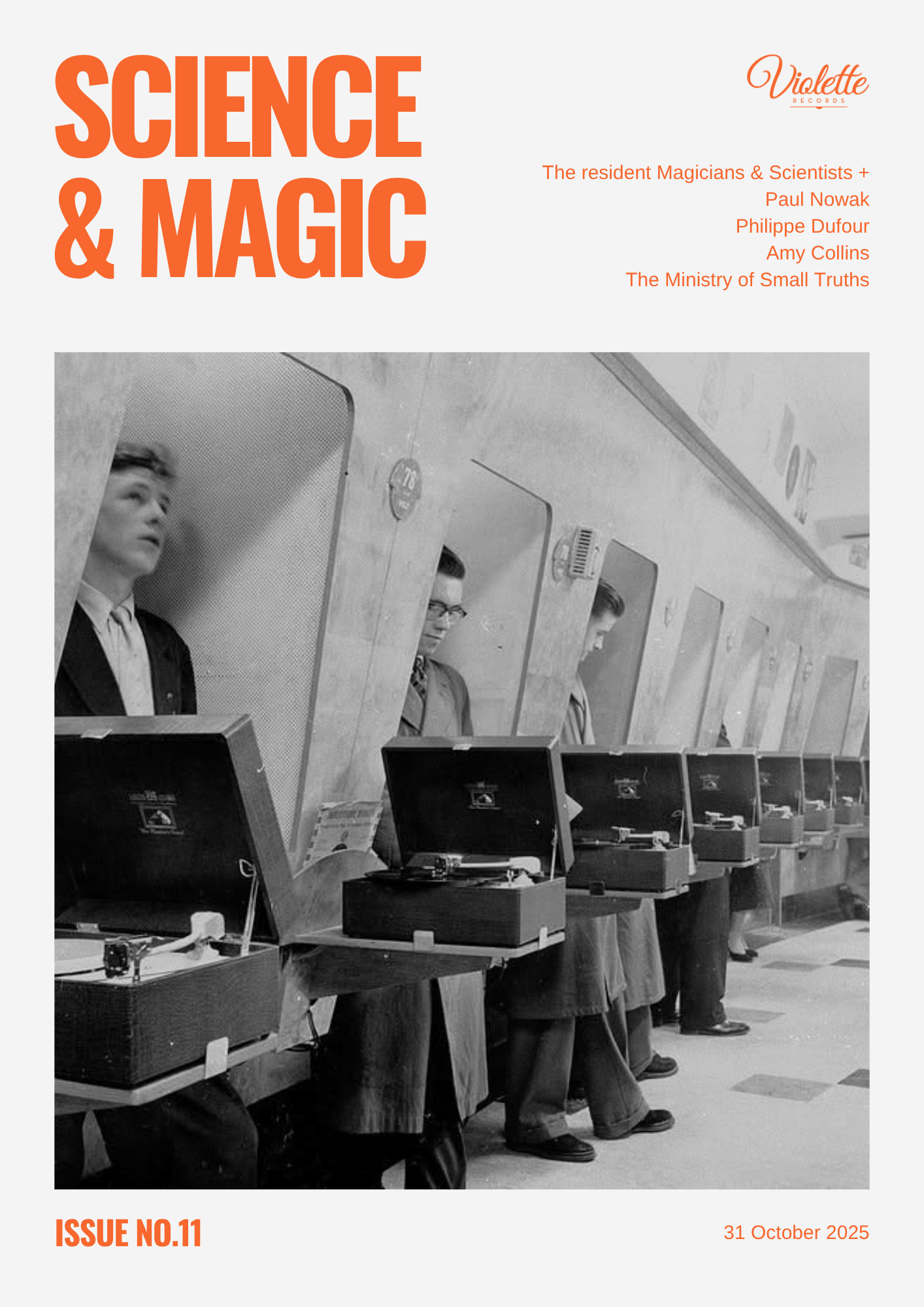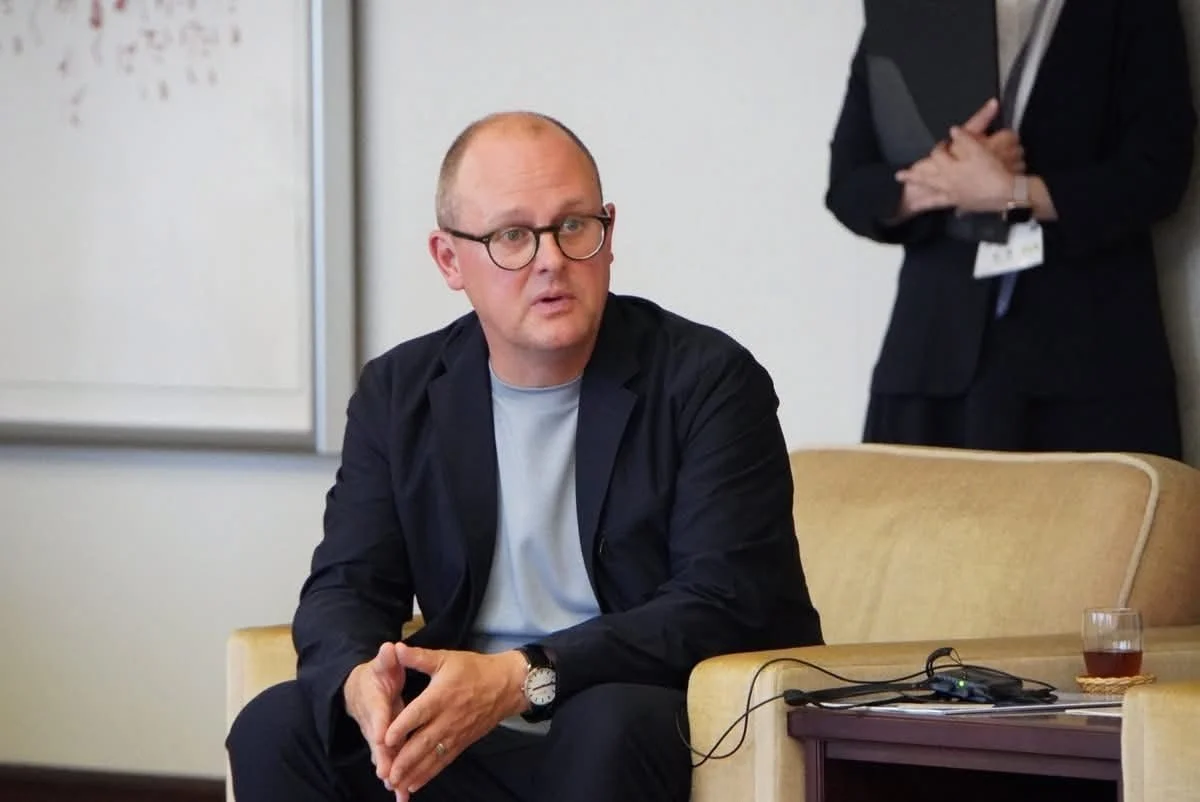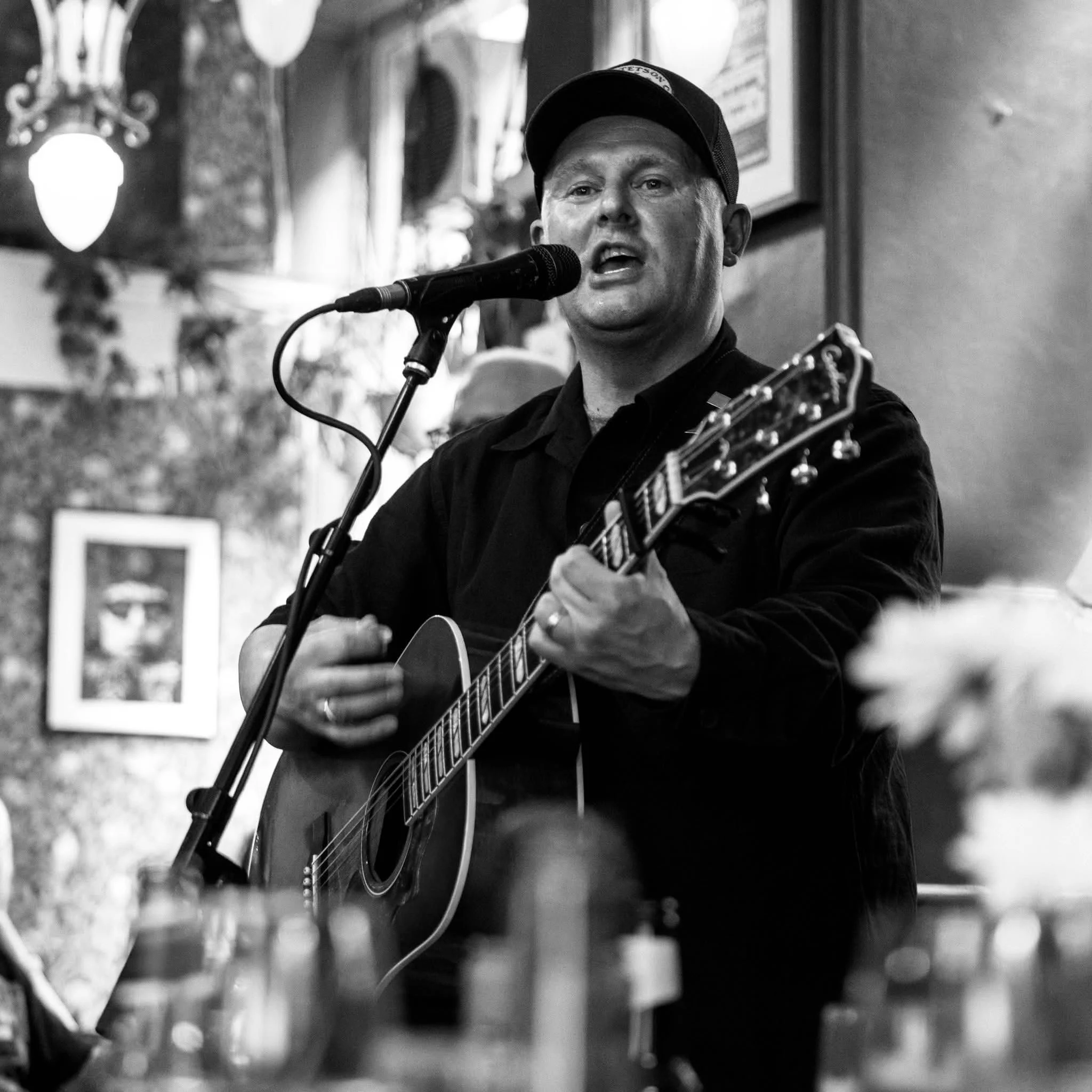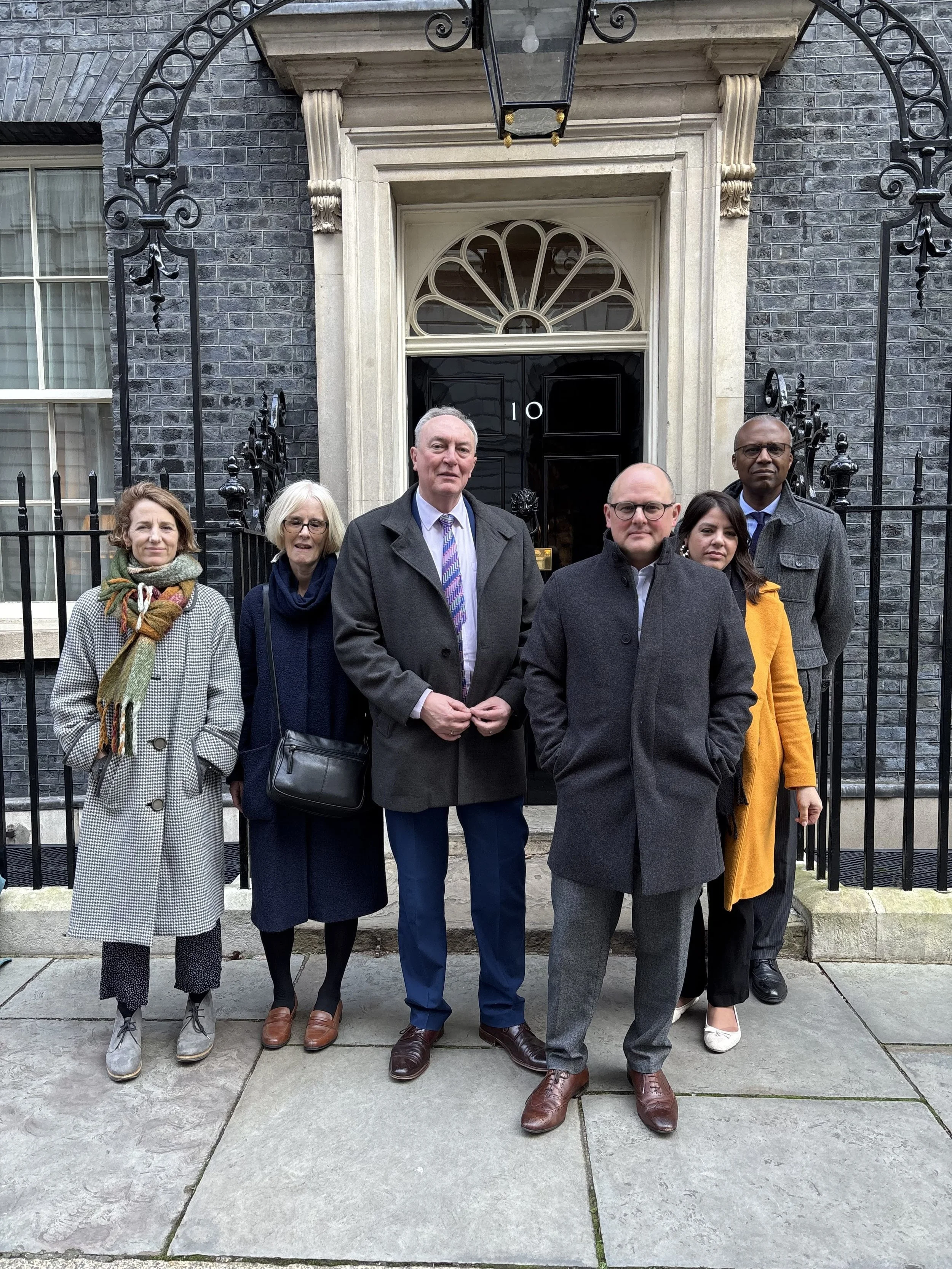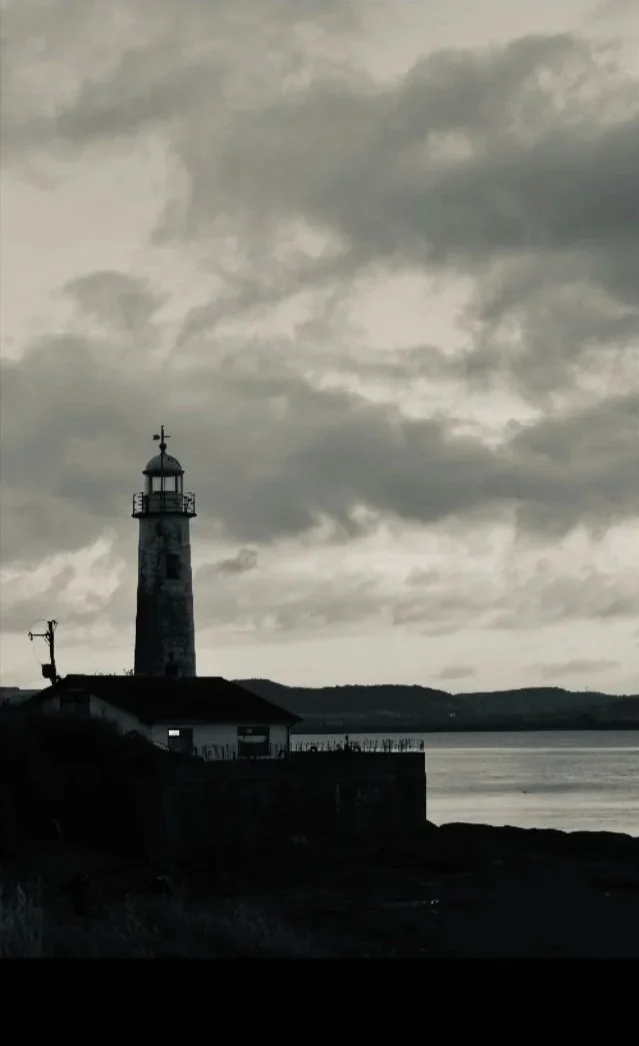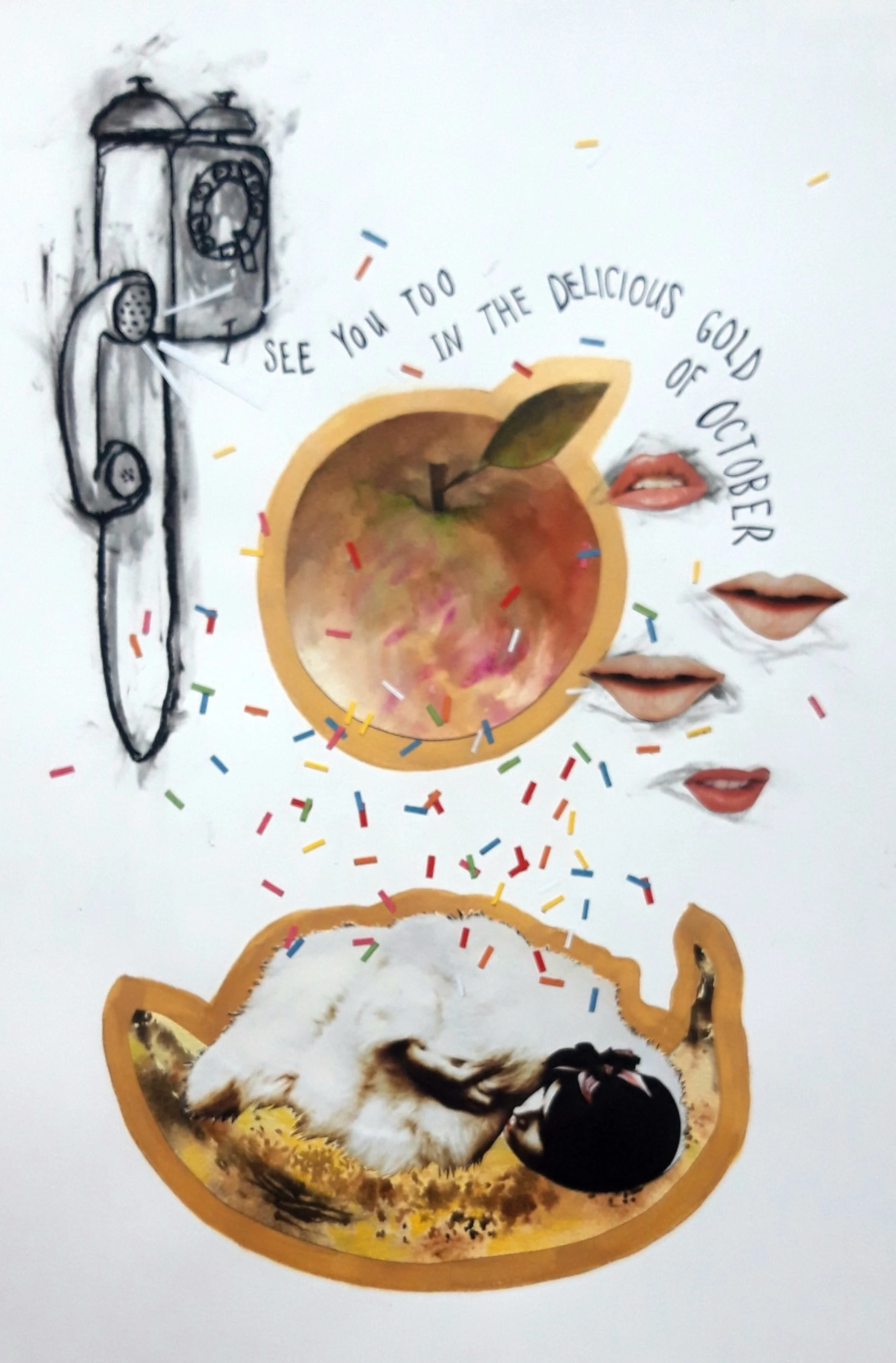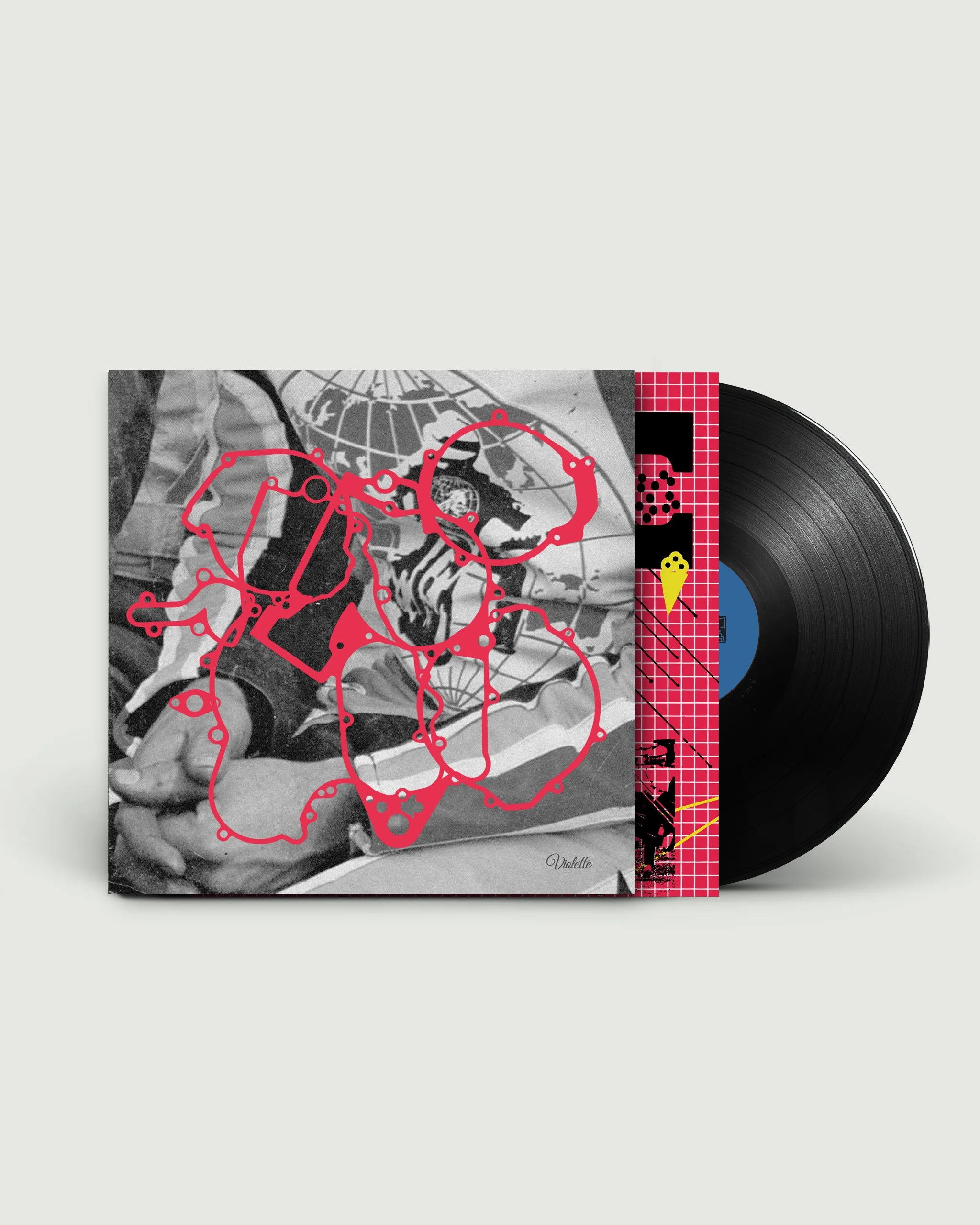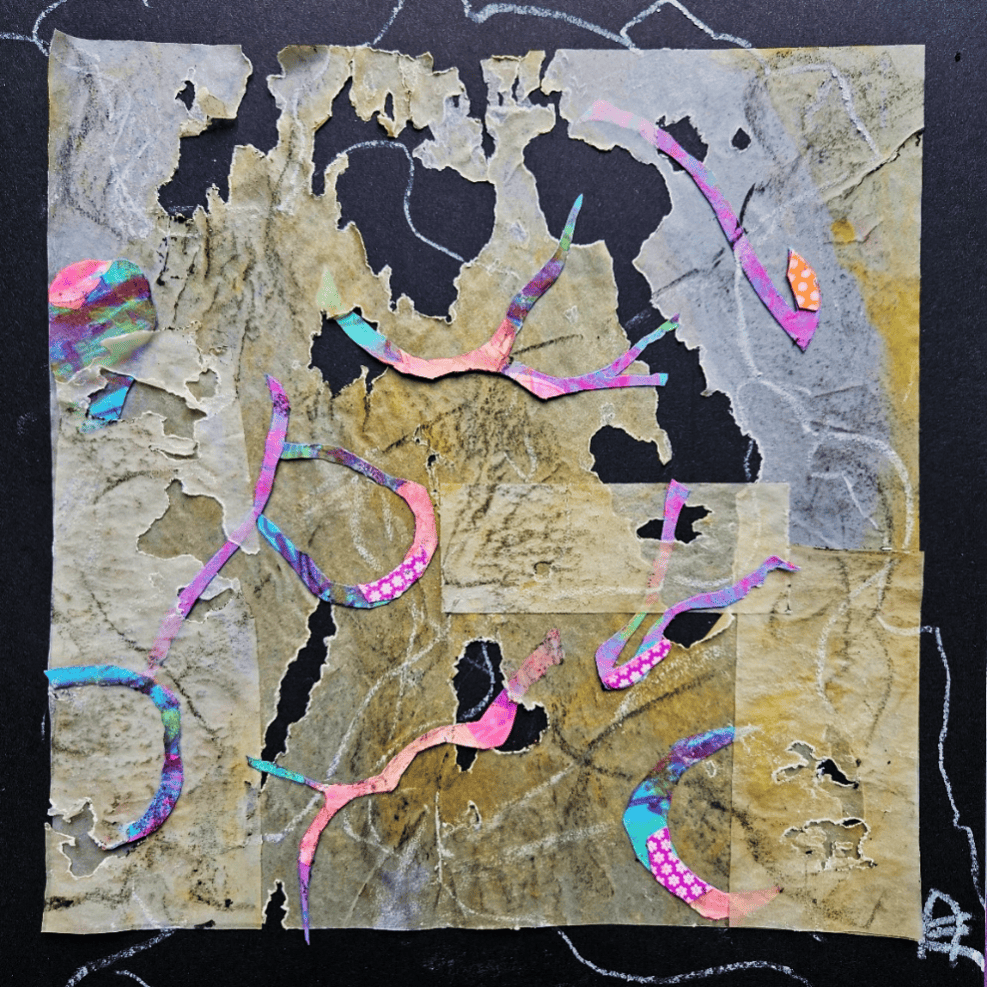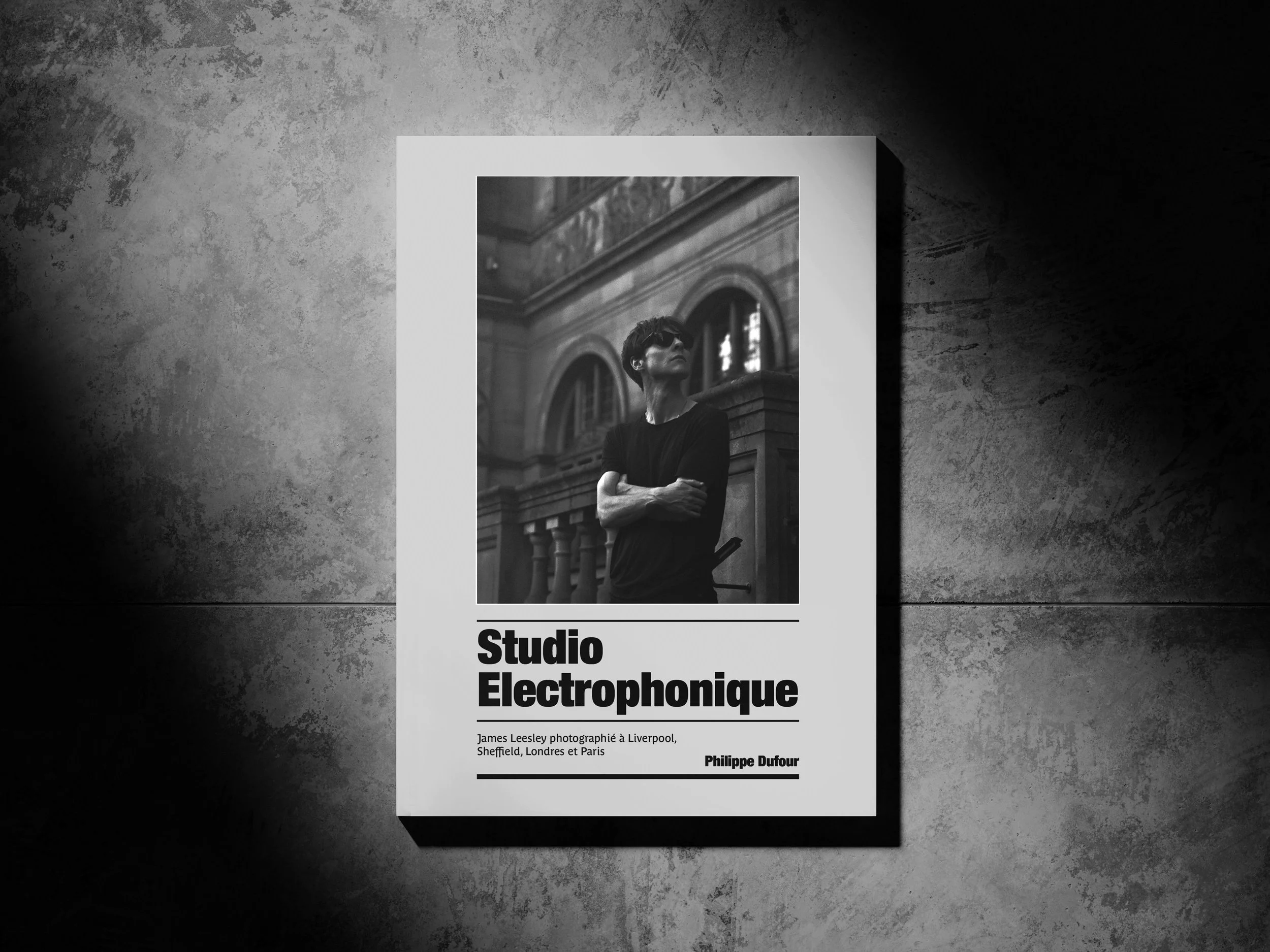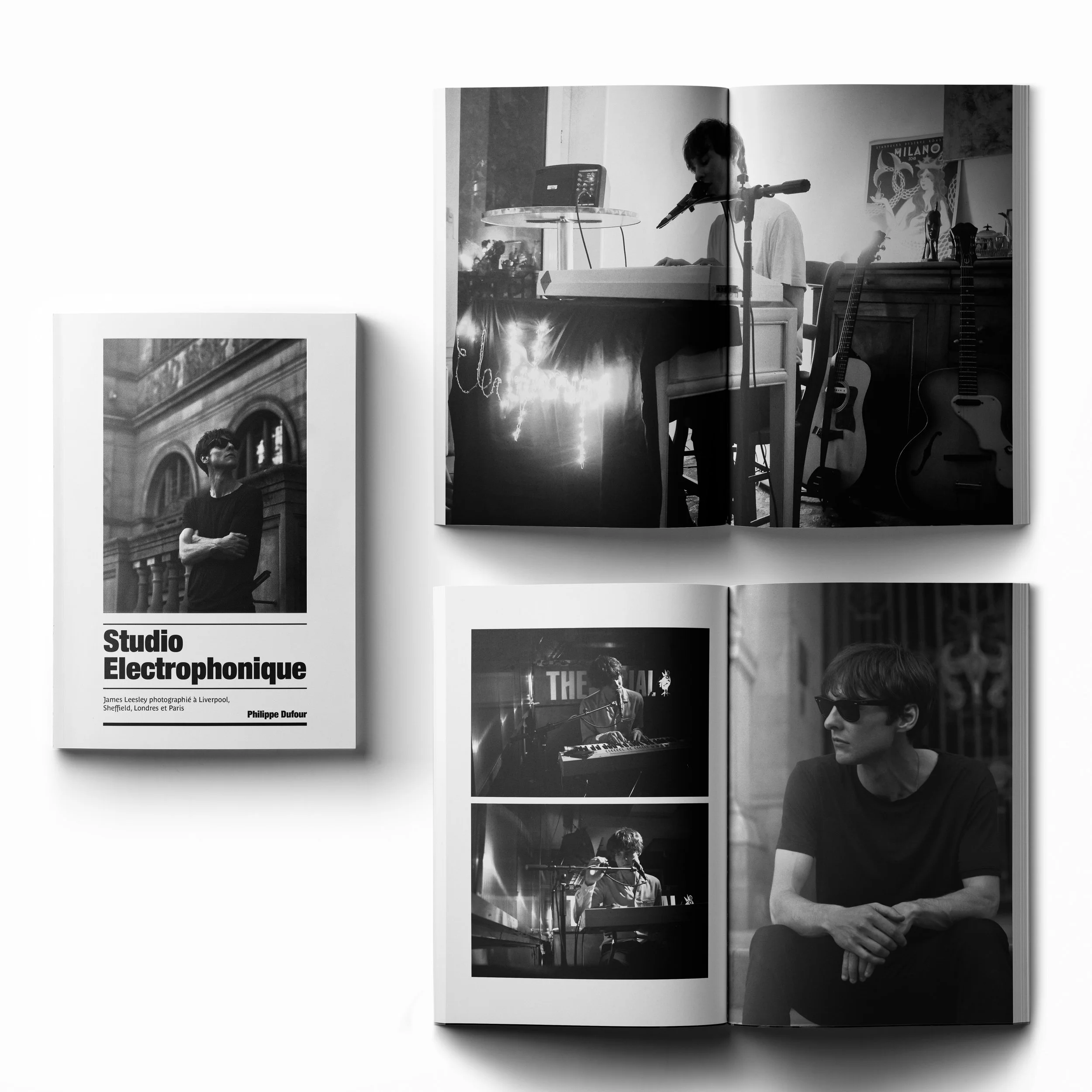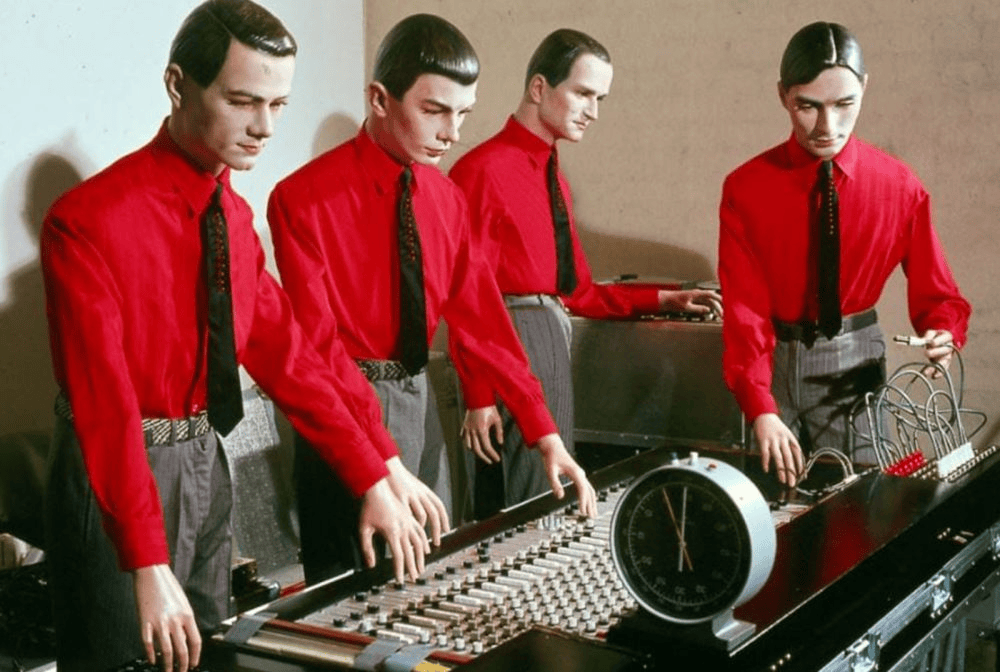Science & Magic | 11
I have a confession. On Saturday, I walked into Waterstones and quietly rearranged the shelves.
Nothing dramatic. I just moved Jeff Young's latest book from its spot three rows back to the front display table. Face out. Prime position. Where people would actually see it.
I looked around to check nobody was watching. Then I did it again with the records at the Rough Trade shop down the road. Favourite artists moved to eye level. New releases I believe in positioned where browsers' hands naturally fall.
Then I went into John Lewis. Walked straight to the tech department, connected my phone to the biggest Bluetooth speaker on display, and played Beatowls' ‘All I See Is Trouble’ at a reasonable volume. Not loud enough to cause offence. Just loud enough for people browsing nearby to notice. To hear something good that they might not have heard before.
I've been doing this for years. Decades. Small acts of administration that nobody asked for and probably nobody notices. But I can't help myself. When I find something I genuinely love, some book or record or artist that feels important, I want other people to discover it too. Not in an evangelical way (although, if the cap fits…). Just in a ‘this deserves better than spine-out in the corner’ way.
It's a strange kind of loyalty. Not to the shop or artist. It's a loyalty to the work itself. To the idea that good things should be findable. That quality shouldn't stay hidden just because the algorithm didn't pick it or the marketing budget wasn't big enough.
I wonder if other people do this? If I'm part of some unofficial network of re-arrangers, quietly curating the world one shelf at a time. If 0.1% of the adult UK population does this, that's about 40,000 of us. Walking the streets on a Saturday afternoon, moving things around, trying to help the good stuff find the people who need it.
This newsletter is part of the same impulse. It's a quiet manifesto, a collection of voices creating work that feels true, moved from wherever the world left them to somewhere you might actually find them.
In this edition, we sit down with Paul Nowak, General Secretary of the TUC, for a ten-question journey through a life soundtracked by everything from Adam and the Ants to Bruce Springsteen, via agency work, call centres and a narrowboat on the canals. Jeff Young returns with a meditation on decommissioned lighthouses and the ache of meeting the child you used to be. Pete Paphides continues The Paphides Principle with Tanita Tikaram, updating old thoughts and discovering that a piano motif and an overheard phrase can haunt you for years.
We introduce The Ministry of Small Truths, a new department operated by Toria Garbutt and Eimear Kavanagh, archiving the small, overlooked, profoundly true moments that comprise a life. Amy Collins reports on an unexpected collaboration with slugs and her three-year-old niece. Joe Mckechnie and Graham Duff collapse thirty-six years into a single piece of music. Rob Schofield charts a morning walk through grief, black mould and the light playing on water.
Meanwhile, we celebrate Tigers & Flies' new record Expanded Play, 100 copies of vinyl that document five people who care more about the rhythm in the room than the algorithm in the…thingy. Tom Roberts considers whether AI will ruin music or whether we simply need better reasons to make it. Ange Woolf sends messages through tesseracts. And Maya Chen explains how a celebrity scandal became Gen Alpha's favourite adjective.
These are the shelves we've rearranged for you. May something here find you when you need it.
Matt
Ten Questions
by Paul Nowak
Paul Nowak is the General Secretary of the Trades Union Congress, a position that involves defending the interests of 5.5 million working people while simultaneously fielding requests from his mother to play 'Brown Eyed Girl' at inappropriate moments. When not negotiating with government ministers or chairing complex industrial disputes, he can be found on his narrowboat, cruising the canals at a stately 3 miles per hour, or performing Taylor Swift covers with Japanese trade unionists in Tokyo karaoke bars.
His journey from Liverpool comprehensive to the heart of the British labour movement has been soundtracked by everything from Adam and the Ants to Bruce Springsteen, shaped by the collision of politics and pop. Paul believes that the best political education comes not from textbooks but from Heaven 17's '(We Don't Need This) Fascist Groove Thang' played at maximum volume in a comprehensive school Christmas disco in the early 1980s.
He continues to maintain that Ian Prowse is criminally underrated, Bruce Springsteen is overrated by his wife (due to dynamic ticket pricing), and Fleetwood Mac will never, ever make sense to him.
We invited Paul - trade unionist, songwriter, and champion of both working people and lost causes in the battle of the bands - to answer ten questions.
● What's your favourite sound that isn't music?
Cruising down a canal on a quiet, sunny morning with the sound of the engine, birdsong and not much else, is perfect. I live on a narrowboat during the week when I'm working down in London and love taking it out and about when I can. You can't go very far at 3 miles an hour, but 15 minutes down the canal and you feel like you're in the middle of the countryside. And it's about the only time I'm not looking at my phone or taking calls, because you have to concentrate on the job at hand. I've got a guitar or two on board, so can always disturb the peace once we're moored up!
● What album would you press into the hands of an 18-year-old today, insisting they listen to it front-to-back right now?
I tried doing exactly that with my three kids, who are know all in their mid-twenties, and it didn't get me very far. I tried them with 3 Feet High and Rising by De La Soul which was the soundtrack to my time in sixth form, but I'm not sure it stuck. The La's is one I'd always recommend to anyone, at any age. It's a bit of a cliché, but I don't mind cliché, and I think it's pretty much perfect from start to finish.
● What song instantly takes you back to your school disco?
'Stand and Deliver' by Adam and the Ants. For a brief period it felt like Brackenwood Junior School had been taken over by Ant Fever! I even experimented with a red lipstick stripe across my face at one stage, much to my dad's horror. My go-to album to take to school disco's was Heaven 17's Penthouse and Pavement, that I'd taped from my older (and cooler) cousin's LP. '(We Don't Need This) Fascist Groove Thang' was the perfect mix of politics and pop for me even back then.
● Which band from Liverpool deserved to be huge but wasn't?
There's so much talent to have come out of Liverpool, that it's hard to say. I'm a massive fan of Ian Prowse who fronted up Pele and Amsterdam, and while Pele were massive for a short period, I think Ian is someone everybody should know about. It doesn't matter if he's doing a one-man acoustic gig or fronting his 14-piece band at the O2 Academy, he gives everything every single time he plays. I've had the privilege of supporting him a couple of times and try and pop down to the famous Monday Club when I can. He's got some absolute brilliant songs in his locker, including new stuff that stands alongside classics like Fireworks, Home, and Does This Train Stop on Merseyside.
● Which song lives in your memory word for word that would cause raised eyebrows if you suddenly performed it flawlessly at karaoke night?
'Shake it off' by Taylor Swift. I'm particularly sharp on the spoken word/rap break! In fact, I busted it out in a karaoke bar in Japan earlier this year with a group of Japanese trade unionists. We used to play it at Ukulele Wednesdays, a little uke club I used to go to in London most Wednesday nights. Turn up with your uke and the song book, shout out a song number and then play and sing along. It didn't always sound great, but it was always sounded better after a few pints. Out of that night we formed a 7-piece ukulele band called Ukiverse, and amongst other things, we played the world most northerly ukulele festival in Finland in January. Newsflash – it was cold. I'm a big 'early' Taylor Swift fan, she has written some serious pop classics. I saw her live last year as well. Not my normal gig, but a brilliant shared experience with my twenty-something daughter and an incredible performance.
● What critically acclaimed or universally loved album do you secretly believe is massively overrated?
Am I allowed to say Sgt Pepper’s… or is that scouse heresy? I love individual tracks, including the title track and reprise. 'Day in the Life' is obviously brilliant, and I can even get on with 'Within You Without You', but the 'For the Benefit of Mr Kite'?? Actually, its not really massively over-rated, but as teenager, I think I wanted to love it more than I actually did. My actual bete-noire would be something like Rumours by Fleetwood Mac. I've never got Fleetwood Mac and I never will.
● What album cover has had the most profound impact on you, either as a piece of art in its own right or as a gateway to the music within?
Probably the cover of Born to Run. It's not my favourite Bruce Springsteen album, but it's the most iconic cover. The one constant in my musical life has been Springsteen. In my teens and twenties I cycled through a hip hop phase, Joy Division/New Order, acid house, Spike Island & Madchester , Britpop and - more recently - I've returned to country music which my brother was a big fan of, but the Boss was always there and always will be. I saw him in Sheffield in 1988, and I've seen him a couple of dozen times since then - even though my wife is effectively boycotting him now because of the dynamic ticket pricing stuff. Getting the Live/1975–85 for Christmas 1986 and working my way back to Greetings from Astbury Park, N.J. gave me months and years of joy. I spent hours in front of the mirror practicing my rock star moves to ‘Darkness on the Edge of Town’, and had a brief and toneless dalliance with the harmonica as result of Springsteen. I've never been a lead guitar hero sort - I'm strictly three chords and my version of the truth - but I have blond telecaster that one day I'll 'learn how to make her talk'.
● What was the first song you ever learned to play on an instrument (even badly)?
'The House of the Rising Sun' on acoustic guitar, quickly followed by 'Summertime Blues' by Eddie Cochrane – basically the same songs everyone learned from chord books in the days before the internet. But as soon as I picked up the guitar, I started writing my own songs, mainly because, as mentioned above, I am a pretty awful guitar player, and so it was easier making stuff up than learning things. I joined my first band aged 14 or 15, and bought a bright red 'Axe' guitar from the back of NME or Melody Maker - £99 all in for the guitar, lead and amp. We did our own stuff and strobe inspired versions of ‘Transmission’ and that sort of thing. Our high point was appearing on The Wide Awake Club – with Timmy Mallet and Michaela Strachan - in a battle of the bands competition! I stopped writing songs and playing guitar in my early twenties and didn't start again for another 20 years.
● What song is permanently fused to the memory of a specific holiday, to the point where hearing it transports you straight back to that time and place?
When the kids were little we took them to a little holiday place in Ireland and our soundtrack to that holiday was Secret History - The Best of The Divine Comedy. Whenever I hear 'Songs of Love' – the theme tune to Father Ted – or 'National Express' I am right back there driving to the beach in Dunmore East in Waterford with our two lads in the back singing along along. The other one is the 'My Heroes have Always been Cowboys' which was on an Outlaws CD that me, my brother John and mate Steve played on repeat while we were driving around France in 1997. I found out on that holiday that my now wife of 28 years and then quite recent girlfriend, Vicky, was pregnant with our first lad, Jozef. If I hear 'Cowboys' I'm reminded of us driving round with the top down on our old VW golf, and the fraught phone calls home. I occasionally sing 'Cowboys' with our John when I can get enough beer down him.
● What's your go-to song for pure, uncomplicated, turn-it-up-and-dance joy?
The one song guaranteed to get the whole Nowak family dancing is ‘Brown Eyed Girl’. My mum loves it, and whenever we have a family party she insists I play it. In fact, whenever I am anywhere with a guitar, she insists I play it. No matter how serious the gig, no matter how poker faced the crowd, you can bet on my mum shouting 'Play “Brown Eyed Girl”' at the end of the night. Of course, I always do. She's my mum after all.
Magnetic North
by Jeff Young
11 : To The Lighthouse…
Down to the river as dark is falling. It’s October, my favourite month, and the dimming sky is suitably melancholy, perfect for lost and lonely souls to go wandering through the darkening day. The river is still. Cormorants in silver dusk-light, charcoal hills on the far bank, cool autumn air. The Mersey is a lonely place on this Sunday evening and it’s time to go to the lighthouse - not that I want to escape from the loneliness, rather I want to embrace it. The closer I get to the lighthouse the closer I get to solitude and sadness. The closer I get to the boy I used to be...
When I was a child, I wanted to be a lighthouse keeper or at least a lighthouse keeper in a book. In love with the idea of solitude even then, one summer holiday I climbed the corkscrew staircase of Smeaton’s Tower in Plymouth, counting each of its 93 steps to the lantern room, imagining the great adventure of a lighthouse keeper’s life. Years later, when I lived for a time in Plymouth I climbed the stairs again, following the boy I used to be, upwards, step by step, until I reached the top and looked out to sea, sad that the years had gone too fast to hold that childhood dream closer to my heart.
The prisms on a lighthouse lens send beams across dark water. The magic ray illuminates the solitude of melancholy night...
Here on the banks of the Mersey there is no beam of light. It seems to me that decommissioning a lighthouse is like extinguishing the light of a lonely soul. Walk away, walk away slowly as darkness falls. Savour the ache of this moment. When you go to the darkened lighthouse you might meet the child you were...
— Jeff Young, 28 October 2025
—
Jeff Young, who currently holds the prestigious TLS Ackerley Prize, has been known to climb structures simply to count their steps, a compulsion he traces back here to ascending Smeaton's Tower at the age of seven when he carefully tallied all 93. He counted in his head on the way up, verified by a hand-written tally on the way down. He maintains a detailed spreadsheet of staircases across the United Kingdom, cross-referenced by material, maritime proximity and emotional vibe. Jeff believes that decommissioned lighthouses are not merely extinguished but are conducting a slow, dignified retreat into shadow, and that if you stand perfectly still beside one at dusk, you can hear it exhale. He is currently campaigning for all defunct navigational beacons to be granted protected status as monuments to melancholy, arguing that a darkened lighthouse is Liverpool's most honest metaphor for the passage of time. His friends worry, but not enough to stop him.
The Paphides Principle
Pete Paphides has a particular skill that feels almost unfair. He can listen to everything and somehow find you the one new song that actually matters. The one that deserves your attention.
His fortnightly dispatch for us, The Paphides Principle, is what happens when someone with exceptional taste refuses to let good music get buried. Enjoy his latest selection.
Tanita Tikaram: Sweet Feather And The Storm
It’s all too easy to forget to update a thought. To think that you’ll catch a cold if you leave the house with wet hair and no hat. To not take on board the fact that Suede’s “new” guitarist has actually been playing with them for 31 years. To still believe that Stephen Fry is the cleverest living human in this country. It might just be that if you believe any of those things, there’s a chance you might think that Tanita Tikaram continues to be that awkward teen in black stockings, singing about ‘eyes like holograms’ and an ‘empty pie for all the fun that people have at night’?
And yet… between the worldwide success of ‘Twist In My Sobriety’ and Tanita’s new album LIAR (Love Isn’t A Right) lies a life well lived. An evolving musical story fed by new musical inspirations, long afternoons in art galleries – all of it opening her up to fresh serendipities. She got deep into Latin jazz and derived deep inspiration from the autobiography of pioneering American vocalist Anita O’Day. She got better on piano and chose musicians for their ability to improvise and surprise her.
Along the way, she also made a fan of me. Not least because I like a lot of those things too. And through being a fan, I also learned that she’s a superb human being. An inveterate giggler – more so than than those first Top of the Pops appearances would have you believe. In 2020, she granted my record label Needle Mythology to permission to sequence and release an anthology, To Drink The Rainbow, which acted as a secret history of TT. The songs featured on it were co-ordinates in the arc of lifetime of curiosity and self-improvement. And because that’s how Tanita lives her life, it’s always likely that the best is still yet to come. If that’s the hunch, LIAR is the authentication of it. And amid stiff competition, my favourite song from that record is ‘Sweet Feather In The Storm’ – a song whose pensive piano motif ate away at her for a year before she overheard the phrase (from her drummer Marc Pell) which spawned its title.
‘I just needed to find the story that solved the puzzle of the title which then allowed me to write the rest of the song,’ Tanita told me when I asked her about the song. When the story came, it was via a radio documentary about the transformation of San Francisco by the tech industry – and the human fall-out created by the flood of new money: ‘You had a whole shadow-world of people who spend the sleeping hours travelling on the night bus. And then I imagined these fragile characters trying to navigate their way through a world where safety and security are remnants of a lost age.’
I first heard ‘Sweet Feather And The Storm’ three years ago when she played it during a sparsely attended Avalon Stage set at Glastonbury and it followed me around for months afterwards, presumably in the same way that it had nagged away at her. The version on LIAR rewards the wait, spidering out into a resigned massed-ranks requiem to more carefree times – and an emphatic vindication of its author’s belief that if you wait long enough, a song will tell you what it needs to be
—Pete Paphides, 30 October 2025
The Ministry of Small Truths
by Toria Garbutt & Eimear Kavanagh
Welcome to the inaugural report from The Ministry of Small Truths.
This department was established on the quiet, un-shakeable conviction that the most important events are rarely the ones that make the headlines. History is written in the small, overlooked, yet profoundly true moments that comprise a life. Our purpose is not to document the significant, but to archive the resonant.
Our field agents, Toria and Eimear, are tasked with identifying and submitting these small truths for archival. Our artefact specialists create the visual evidence required for permanent filing. This newsletter serves as the public record of their findings.
The 'Ministry operates on a single principle: that the sound of keys dropped on a kitchen table at 3am carries more truth than a thousand official government statements. We believe the world is understood not by looking at the big picture, but by placing a single, perfect detail under a microscope.
Our first official filing follows. We trust you will handle it with the care it deserves.
Case File #001 :
Report on interacting with fruit in an autumnal morning hinita* on a wooden floor in Halifax. Observation of a moment of time in which the ordinary and every day turns extraordinarily luminous.
*Hinata: a spot exposed to sunlight
Sit in it
Put your apple under the spotlight
Watch it turn to glass before your VERY EYES
Examine it very quietly and closely
Listen
Kiss it
Lick it like a sugar dummy at the seaside
Dip it in chocolate and sprinkles
Put it to your ear after you bite
Hear it crackle forever
Feel the inside of your cheeks bleed
Read its veins
A haiku in a fortune teller’s teacup
Hold a banana to your ear
Tadaaaa
a cordless phone
Talk to your sister
Tell her you've missed her
The delicious gold of October
Cast a beastly shadow with your hands on the wooden floor
A huff and puff woolf knock knock knocks at the door
Squint one eye to block the light
Hold the skeleton of a promenade parasol in your spindly fingers if you’re so inclined
Feel both worlds exist at the exact same
—
The Ministry of Small Truths is maintained by Toria Garbutt and Eimear Kavanagh, who work in tandem to document the overlooked and archive the resonant. One observes, the other renders; the rendering prompts new observation; the observation demands new evidence. Truth, they have found, lives in the testimony or the artefact and in the spaces between. Their case files appear as Science & Magic.
Tigers & Flies - Expanded Play
We're releasing something this week that matters to us, and we think it might matter to you too. Tigers & Flies' Expanded Play collects eight tracks across two EPs, pressed to vinyl in an edition of 100 copies. Not 100 as a marketing gimmick, but 100 because that's what feels right for a record this specific. It's £25.99, which is real money, so let us be honest about what you're buying: this is a document of five musicians who care more about the room they're playing to than numbers on any screen.
Arthur Arnold writes lyrics that land somewhere between observational and devastating. Matteo Fernandes and Risha Alimchandani deploy brass as narrative voices rather than decoration. The rhythm section of Arvin Johnson and Eddie Wigin holds it all together with a tightness that only comes from people who must genuinely like each other.
If you've been to one of their shows, you already know. If you haven't, this is your entry point. Pre-orders are shipping now. Once these 100 are gone, they're gone. We're not being coy - we genuinely won't press more. This is it.
You can order here and if you're around this week, they're playing Brighton (Rossi Bar, 28th), London (Next Door Records, 29th), York (Fulfordgate WMC, 30th), and Manchester (Kamera, 1st November).
Come say hello. We'll be the ones trying to sell you vinyl like it's 1983 and we haven't learned anything since.
Organic Interference
by Amy Collins
This summer I became fascinated with anthotype printing. It’s this old-school, eco-friendly photo process where you use natural plant pigments to make paper light-sensitive. Once the paper is brushed with the pigment, you can place some objects on top. I’ve played around with printing leaves, seaweed, shells and even some kids’ toys, then you leave it out in the sun to develop. If you’ve heard of cyanotypes (those bright blue prints), this is like their earthy, unpredictable cousin.
I’ll come back to write more about how much I love making this kind of art when the sun comes back out, but for now, let me tell you about a happy little accident. A surprise collaboration, if you will…
We had a scorcher this year, and I was determined to squeeze every last drop of UV out of it. Each morning, while stirring my coffee, I was also mixing up anthotype solutions: a dash of beetroot juice, a pinch of turmeric, and a glug of isopropanol (aka 99% rubbing alcohol). There was a time, early in my addiction recovery, when I wouldn’t have let that stuff within sniffing distance of the house. It’s basically cleaning fluid, not vodka, but still alcohol. But we’ve had a pandemic since then, and weren’t we all marinating ourselves in the stuff? Turns out, I never once fancied necking it. So, we’re golden.
Still, it amuses me that I’m creating something beautiful with alcohol. Is that irony?
I tried all sorts while perfecting my prints—adjusting concentrations of mixture, switching pigments, swapping different papers. One day I thought I’d try tracing paper, because some of the thicker paper I was using was soaking up the juice and ruining the prints. I set it all up in the yard with some clear acetate on top to stop the wind nicking my leaves, then went off to work. I came back later, full of hope… and it was a total flop. Just a sad, crinkly sheet with a turmeric dusting. No shapes, no colourful print. Oh well. You win some, you lose some.
Fast forward a couple of days, I’m out in the yard, enjoying a coffee, the are cats milling about around me. I spot a bit of that tracing paper on the floor. Must’ve missed it during clean-up. I notice that it’s full of holes. Not just random tears, but these delicate, lacy patterns, like someone had been making paper snowflakes. I look closer. The edges aren’t ripped—they’re chewed. There were some glossy, pearlescent trails that gave it away: slugs. The greedy buggers!
I’d already been doing a nightly dance with the slimy little sods, scooping them up from the kitchen where they’d sneak in to chow down on leftover cat biscuits. But this time? They’d feasted on my failed art print. And honestly? It looked amazing. These weird, organic shapes—totally unplanned, totally beautiful.
Then it hit me: the alcohol. Oh god. Did I just host a slug rave? Are they okay? Would slugs and snails survive a 99% proof party? I suddenly felt a pang of guilt. I couldn’t see any signs of casualties, but I still worried. At the same time, my imagination did what it always does—spiralled into another world. I thought about Roald Dahl’s James and the Giant Peach (obviously the booze made them able to talk). Maybe some other insects joined in the dance. Obviously, Honey, I Shrunk the Kids came to mind too, with those enormous ants – now I’m at the party with the insects. It wouldn’t be the first time I’ve anthropomorphised a situation like this. I cast my mind back to a poem I wrote and illustrated when I was 19 called The Cricket Drum & Bass Arena. Might have to dig that one out.
Anyway, I couldn’t bin the slug art. I set about making a collage, entirely inspired by the imagined bug party using the striking chewed paper. On the day of this discovery in the yard, I happened to be collecting my niece and nephew from school. Emmy (3) handed me a gift—a collage she had made herself in afterschool club, full of splodges of paint, all pink and neon and wonderful. I asked if she minded me cutting it up to be part of some art I was making with the help of some friendly slugs. Naturally, she agreed—though she laughed and corrected me: “Aunty Amy, slugs aren’t friendly.” I had a lot of fun trying to convince her.
So here we have it: Snail Party by Amy, Emmy and the Slugs (also our punk band name).
—
Amy Collins has recently accepted that her most successful artistic collaborations are with creatures who have no idea they're collaborating. Following the critical and commercial success of ‘Snail Party’ (created in partnership with several unnamed gastropods and her three-year-old niece Emmy), she has expanded her practice to include what she calls ‘involuntary co-creation protocols.’ She now leaves failed art experiments in strategic locations around her yard, carefully documenting which species show interest. The woodlice, she reports, are philistines. The beetles show promise. She has begun mixing anthotype solutions with varying alcohol concentrations, partly for artistic purposes and partly to test her theory that slugs might have a preference for certain proof levels. Her neighbours have raised concerns about what appears to be a garden bar for invertebrates. Amy insists this is serious research into the intersection of substance, surface and chance, and that the best art happens when you stop trying to control the outcome and simply create conditions for beautiful accidents. She is currently in talks with Emmy about their punk band, though Emmy maintains that slugs aren't friendly and would make terrible drummers.
Drifting…
with Joe Mckechnie & Graham Duff
Joe Mckechnie’s musical life is a web of strange, intersecting loops. A forgotten gig poster from 1990 sparks a collaboration thirty years later. A casual bar chat on his first day in Manchester in 1980 is interrupted by undercover police. Joes moves through time not in a series of echoes, where the past is constantly, unexpectedly, re-asserting itself in the present.
This week’s dispatch from his Drifting... project is a perfect case in point. The story begins in 1980, on the night he joined the band The Passage and possibly attended the Dr. Fun/City Fun festival. It then jumps to 2016, at Liverpool's PZYK Fest, where he meets the writer and actor Graham Duff. It is only then that Joe learns they had, in fact, met before—at that very same festival, thirty-six years earlier.
This temporal knot, this collapse of time, is the backdrop for their new collaboration. A piece of music sent, words written into a phone, and the unexpected emergence of, in Joe's words, ‘Croonie Dee.’ This is what happens when two timelines finally, beautifully, collide.
November 1980:
End of 1980, I packed my trunk and headed to Manchester to join The Passage. Day One, I got off an early afternoon train at Oxford Road and headed to a nearby bar [now Grand Central] for my first meeting with Andy Wilson and Lizzy Johnson, the other new Passage members. Also joining us, Lawrence Beedle, the group’s new manager, and Dick Witts, who’d gathered us.
While waiting for the tardy others I was drawn into idle bar chat with another patron, this quickly turned to serious chat when some undercover cops decided to join us. I was taken off to one side by the Anderton Boys and questioned as to my reasons for being in a bar, talking to people, - y’know suspicious behaviour like that.
Just when it looked like they weren’t going for my ‘just joined a group’ reason for being, the others arrived to validate me.
Did we all go to the Dr Fun/City Fun gig for some ‘getting to know you’ that very same night? Let’s say we did, that’s quite believable.
I know what you’re thinking, where am I going with this? Where’s Duff?
September 2016 - PZYK Fest, Liverpool :
I can’t remember if I DJ-ed at the Festival this time around, but I do know I was looking forward to meeting Graham Duff for the first time, we’d already had a bit of Passage/Ideal related email action.
I think the emailing came after Graham had written an essay about The Passage for Prog magazine. Prog? We’re not Prog!
Anyway, I met up with Graham at the Festival just before he gave his illustrated talk on LSD/UK TV/Etc. A sugarlump tripping Alf Garnett anyone?
My opening “great to finally meet you” fell flat immediately when Graham replied that we’d met before, that he’d spoken to me about The Passage at the Dr Fun Festival back in 1980.
I apologised for my lack of recall, Graham said it was fine, and we moved the conversation on.
If I might change the subject for a second; have you ever had this strangely strange experience? You’ll be in conversation with someone, perfectly polite, reasonable, all that, and yet you get the sense that they’re making a fist in their pocket?
Anyway, back to Graham.
July 2021 :
With the first ‘Drifting ft’ track with Pascale having turned out so well (See last issue - Ed) I figured it’d be good to do some more, a series of one off releases, featuring a variety pack of guests.
Graham liked ‘Song Of The Twilight Zone,’ had already played it on his Mixtape radio show, and with his script writing, his acting, the fact that we’d been best mates since 1980, he was an obvious ask.
I sent him a track, he wrote some words and recorded them into his phone.
I was expecting some spoken word, but…
Never mind Spoonie Gee, here’s Croonie Dee.
— Joe Mckechnie, 28 October 2025
See The Light Play on the Water
by Rob Schofield
Black mould and fungi are killing kids. I used to wonder about the mushrooms under the window, but it turns out they’re real. I shut them into the flat, press my back to the door and breathe, but the smell’s no better in the hall. There are two dead plants at the bottom of the staircase, dribbling soil onto the carpet. Outside 1A is a bike that’s missing a wheel, and there’s a scooter that someone’s messed with by the fire escape. They’ve all got them and fuck all’s being done about it.
The street is dark. Clouds have got the better of the sun, but it’s lurking, waiting for an opportunity. It’s good to know it’s risen. The promise of warmth and light keeps me moving. I know where I’m going, but I’ve somewhere to be first. I choose to hope the sky will be blue by the time I reach my destination.
Number 8’s bin is on its side next to a mound of dogshit that reminds me of clay on a potter’s wheel. The bin’s empty, so I pick it up and trundle it back from where it came. That’s what Mum would have done. Some of the shite has got on the wheels, and it leaves a trail for the owners, should they be interested in its journey. Being curious is a way of staying in the moment. You can take that too far, like how a bin got to where it was and back again, how it got shit on its wheels, and what sort of person lets their mutt evacuate in the centre of a busy path. Okay, it was sloppy, but it was a choice not to clean it up.
Six people are queuing for the bus. Two look asleep, two are twitching, trying to see around a corner, and the other two are locked on their phones. The fact that they’re in pairs makes the back of my neck tingle. Seven’s a lucky number, but I won’t be the odd one at the bus stop. I keep walking and that’s when I bump into Chrissy.
She’s begging next to the Spar. She’s so spaced out she doesn’t realise the cash machine’s out of order. You can’t deny she’s got a killer smile. If she’d been born someone else, she’d have perfect skin and would be a model. She’d still be skinny, which is ironic and tragic. Two for one, like the Strongbow in the Spar. Howdy, she says, in a cowboy voice. She mustn’t know it’s me. She doesn’t like to waste her charms. Chrissy, I say, it’s me. She puts a hand to her eyes like a salute. Nails black and bitten. Thumb bleeding. She smiles, and I see the gaps where a model would never have teeth missing. Spare some change, pardner, she says. Chrissy, I say, it’s me. She lowers her hand and drops her chin to her chest. I leave my bus fare between her feet.
Auntie Karen is in her coat, slippers and pjs underneath. Mum told me to look out for her. She used to be fierce, Mum once said, but now’s she’s fragile. Show me someone who isn’t, is how I wish I could reply. Auntie Karen wants to know about the weather. If she pulled the curtains back, she could see for herself. I describe it better than it looks, she says. She gives me a twenty for the messages. Bacon, spuds, a piece of fish and some peas. Milk. Tea bags. The cheap ones. Five pounds on the leccy. A quarter bottle if there’s enough. She sends me next door for a mug of hot water. She can’t get going without her morning brew.
I won’t go back to the Spar because a) Chrissy, and b) I’m trying to move forwards today. It’s quiet in Lidl, but it takes me ages because I don’t know where stuff is. There’s a long queue when I get to the till. How can that be? I’ve seen two people with baskets and that’s it. I’m next but one in line when the cashier goes on a break. The new one looks familiar. I might have been at school with him. He doesn’t let on. It comes to me when I’m outside: not his name, but who he is. No wonder he kept schtum. A conspiracy of silence, ten or fifteen years later. Who am I kidding? Eleven years and three months. Someone should have spoken up, but we were kids. Teenagers is still kids.
Hang on. He’s followed me out. He tugs my elbow from behind. Whoa, I say. Don’t touch me. Sorry, he says, I’m the same. I was always like that, I says, but I know what you mean. He’s still around, he says. Our kid’s seen him. His kid was good at footy, and with girls. Nobody messed with him. Where, I says. My balls tighten and I can’t get my breath. In town, he says. With a crowd of hangers on. No change there then, I say. Looks like shite now. Drinker’s nose apparently. That’s good, I says, pinching my snout. Never touch the stuff. After your Mum, he asks, and then clamps a mitt around his gob. Sorry. Don’t worry, I says. People never know what to say. Something’s better than nothing.
His hands are on his hips. You’d think he’d have learned it’s not a good look. He’s watching me as I turn onto a street where the houses are neat and tidy, with front gardens. Real and artificial grass. Decking. Fountains and ponds. A gang of sparrows in a hedge. If there’s a pecking order, I can’t work it out. They’re noisy buggers. With all that energy, if they got organised, they could achieve something. As it is, they’ll get no further than food, water, and shelter in the hedge or thereabouts. A hand flashes through a blind. I point at the birds. The hand retreats and I take my cue.
Cars parked on the pavement, facing forward. Princess on board. Football teams. Flags. A smiley face. A finger or two. Danny Swift, that was him, at Lidl. Funny how your name doesn’t always fit. Swift he was not. Two scooters pass in a blur. I grip the shopping bag. I didn’t see their faces, but I bet their hoods were pulled into tight circles. Threats of moustaches on top of skinny lips. Terrified, wannabe gangsters. Children. Could have been me. Or you. A dog barks, and then another. A cat dozes in a window. The sparrows are safe for now.
Auntie Karen’s tied an apron over her coat. Sit down, she says, I’m making breakfast. I’ve eaten, I lie. Well you can eat again, she says, no arguments. Bacon butties. Put a bag in the teapot. Rinse that mug under the tap. I take a moment to feel my seat, wiggle my toes, squeeze and relax my fists. Breathe in for five and out for eight. I’d do eleven, but I don’t want to freak her out. I open my eyes and a shaft of sun has got through her nets. This makes me uneasy because I want to get where I’m going. I don’t want to miss my chance. This is what today is supposed to be about. Auntie Karen puts two plates on the table. I toasted the bread, she says. No brown sauce. Fine by me, I says, I’m red all the way. Your mum was red too, she says, and winks. She’s wrong, but I don’t want to burst her bubble. It’s better to be nice than right.
Auntie Karen dabs the crumbs from her plate and lights up. She blows a long plume to the ceiling. Ahh, she says. Two a day now. One after breakfast and one after tea. What about lunch? She inhales and shakes her head. I don’t to want to come between her and her ciggy, so I stare through the nets. The clouds are in retreat. The sun is asserting itself. All it had to do, like the rest of us, was wait. Earth calling. Earth calling, she says as she extinguishes the cigarette. I can hear the crush under her thumb. Tobacco smudging plate, deprived of oxygen. The last throes of a killer. What are you frowning for? I’m not. You are. Am I? Yes. Just thinking. You’re always thinking. I’m a thinker, what can I say? You’re a dreamer is what you are. No, I say. Dreams are for other people. Here and now, that’s what I’m about. You don’t ever think of your mum? I scrape the plates into the bin and leave them by the sink. Places to go, people to see, Auntie K. She opens her arms for a hug. Who do you have to see, she whispers into my ear. I kiss her cheek. Well, there’s you.
Downhill from here, but I’m upbeat. Excited. If an alien landed now, they wouldn’t have to find a word for clouds. They’d have a quick mooch and fuck back off. It takes a lifetime to appreciate this world of ours. If you get that long. If you work on it, the warmth of the sun can mask a thousand cruelties. Don’t waste time on potter’s wheels filled with dogshit. Forget about gangs on e-bikes. Put Daniel not-so-Swift out of your mind. Stay grounded. Breathe from your diaphragm. Think of people and things that matter. Chrissy. Auntie Karen. Mum.
From where I’m standing, I can see it through a gap between the warehouses at the bottom of the hill. It disappears as I descend. Don’t rush, don’t dawdle. Imagine what is to come. Paint a positive picture in your mind and half the battle’s won, ere the set of sun. Flashbacks to school. That’s Swifty’s fault, coming out of the past in Lidl. One warehouse is To Let. The other’s a radiator outlet, vintage and new. There’s some of us scared of putting the heating on while others are reclaiming ironwork from office blocks and old churches. Slap cheeks twice.
There’s a busy road to cross. Drivers not inclined to slow. I can see it now, on the other side and behind a fence. A solid grey/blue mass, like a swollen oblong trying to escape its shackles. There’s a way down to the path, but I can’t figure out where it is. Traffic lights must have changed somewhere, and I make it over the road. Fuck it: I climb the fence, swaying with the wire. It’s a wrestling match and I win. A patch of land, which could be a skate park or basketball court. They could build a library. A health centre. As it is, it’s a place for litter to gather. Cans, packets, bags. A withered hose. At the end, a low wall to clamber over that’s been tagged, and tagged over the tag.
Mum taught me to look for the beauty in life. This is where I find it. She liked poetry, and I feel her whenever I come down to the river. I love how the breeze riffles the water into millions of gleaming jewels. When the sun disappears, I’m reminded that things don’t last, even if they sometimes come back. Once, it was so cold that sheets of ice jostled the banks. When the wind blows hard from the city, I imagine it’s carrying away the stuff we don’t want or need: violence, fear, ignorance, hate, hunger, despair, black mould and fungi. I think about all of it breaking down amongst the vastness of the ocean; and when it blows the other way, what will it bring us? Mum, come hold my hand. I’d give everything I’ll ever own for you to see the light play on the water.
—
Rob Schofield writes about grief as a form of navigation, about finding your way through a morning when you'd rather stay behind closed doors, about the small acts of care that keep us tethered to the living. His fiction maps the geography of British working-class life with the care of someone who knows that a bin on its side tells a story, that sparrows have hierarchies we can't decode, and that the difference between being nice and being right is the difference between surviving and drowning. This piece was written, he reports, after a series of early morning walks along the River Mersey, where he practised the mindfulness techniques that appear in the story. He maintains that beauty exists everywhere if you're desperate enough to look for it, and that the hardest days require the smallest rituals to survive them. He believes that fiction should tell the truth about how people actually live, which means acknowledging both the black mould and the light playing on water, because pretending only one exists is a lie that helps nobody.
La Violette Società 59
There is a particular, bittersweet quality to a long goodbye.
On Tuesday 25th November, we convene at Ten Streets Social for the second of our four final Società events. This is another step in the ten-year-long conversation we have been having about how to experience art together. It is another chance to participate in our quiet revolution against the tyranny of the headliner.
For this gathering, the stage will be shared by Rosy Carrick, The Rossettis, Psychederek, and Trial Tapes. Four distinct voices, brought together for one night with equal billing, equal stage time, and equal respect. The order of appearance remains a mystery to be solved on the night.
We hope you can join us as we continue our slow, deliberate and beautiful farewell.
The Gen Alpha Lexicography
by Maya Chen
09: 'Diddy Party'
Etymology: Viral social media clips, celebrity scandal reporting, and the internet's talent for turning complex legal matters into absurdist memes (c. late 2023).
Last week, my son came home from a friend's birthday gathering looking deeply unsettled. When I asked him what was wrong, he simply shook his head with the weary gravity of a seasoned war correspondent and said, "It was a total Diddy party, Mum." He was not, I should clarify, referring to the presence of a multi-millionaire record producer. He was referring to the fact that the sausage rolls were sub-par and the playlist was, in his words, ‘giving corporate away day.’
Welcome to the latest, most surreal evolution in digital slang: the transformation of a celebrity's public downfall into a universal adjective for ‘vaguely uncomfortable or disappointing social gathering.’
The term 'Diddy party' is a masterclass in the internet's capacity for rapid, context-stripping abstraction. It has taken a series of serious, complex allegations and processed them through the cultural woodchipper of TikTok and Twitter, producing a neat, bite-sized term for any social event that feels slightly 'off'. The genius, and indeed the horror, of the phrase lies in its complete detachment from its origin. My son and his friends are not making a commentary on Sean Combs; they are describing a birthday party where the crisps ran out too early.
What we are witnessing is the final victory of the meme over meaning. The specific details of a news story become irrelevant; all that matters is the lingering 'vibe' of awkwardness and bad faith. The phrase functions as a kind of social shorthand, a way to signal a shared, unspoken understanding that a situation is Not It. To call a gathering a 'Diddy party' is to declare it a failure of vibes, a social dead-end, an event tainted by a sense of deep, unnameable unease.
It is the language of a generation so saturated with information that it can only process reality by turning it into a running joke. They are not trivialising the news; they are metabolising it, turning the chaotic noise of the adult world into a concise, usable, and deeply cynical tool for social navigation. The party wasn't just bad; it was 'Diddy party' bad. And in the bizarre, accelerated logic of 2025, that somehow says it all.
Next time: 'Era' - When changing your hairstyle becomes a significant historical period.
—
Maya Chen's children have weaponised language against her and she's decided to document the entire assassination. They have perfected the art of having entire conversations in her presence that she cannot parse, despite holding a PhD in Sociolinguistics and teaching undergraduate courses on semantic drift. Last Tuesday, her daughter looked directly at her and said, "Mum's outfit is so brain rot core, no cap, straight giving Victorian oil painting but make it Primark." Her son nodded with deep seriousness. Maya wrote it down. She has no idea what it means. She suspects it wasn't kind. Her methodology involves standing slightly too close during their phone conversations, screenshotting their Discord chats when they leave laptops open, and asking clarifying questions that cause both children to leave the room in despair. Her husband has suggested this borders on surveillance. Her children have suggested she seek professional help. Maya maintains that linguistic evolution is a blood sport and she's simply taking notes from the battlefield. She is losing.
Murphy’s Ghost
by Ange Woolf
In the time it will take me to find you
And tell you what I’ve seen
To share the desperate longing
And show how lost without you I’ve been
You could walk by foot around the world
Creating new civilisations and watch them thrive
You could write one hundred plays about humanity
And how they lose their drive
Waves get high and they get low
The weight of living gets heavier and so
It would be easier if I show you
Where time is inbetweening
A dimension where hope prevails
Untethering souls
From words and their meaning
That have now become gas
And they make up the stars
And they shine on you
Reflecting themselves
Like Venus and Mars
The cosmos within
Without need for coherence
Because now you know
All that ever is or was
No fundamental restrictions
You will see how my love
Transcended time and space
Moving planets to get back to you
Our Universe in a bookcase
Together and alone
In blackness or in blue
I never gave up trying
I promised I’d come back to you
But If you never hear me calling out
If my words don’t ever land
Just know that
I was always there
I never left
I was always close to hand
—
Angie Woolf has recently become obsessed with theoretical physics, specifically the concept of tesseracts and five-dimensional space. This poem emerged from what she describes as a ‘sustained meditation"‘on the film Interstellar, which she has now watched forty-seven times, pausing repeatedly at the bookcase scene. She has begun constructing her own bookcase as a kind of portal prototype, arranging volumes not by subject or author but by emotional weight and gravitational pull. She reports that certain books, when positioned correctly, create what she calls ‘dimensional apertures’ - gaps between spines where messages can theoretically pass through time. Her neighbours have complained about the sounds of her tapping morse code patterns on the shelves at 3am, attempting to communicate with past and future versions of herself. She insists this is not madness but method, and that love, properly understood, operates according to laws of physics we haven't yet discovered. She maintains that the cosmos doesn't care about our need for coherence, and neither should our poetry.
Studio Kodachromique
By Philippe Dufour
Photography, like music, is a kind of time travel. It captures a moment and holds it, allowing us to return again and again.
Between 2019 and 2025, our friend, the photographer Philippe Dufour, captured these moments with former Violette starlet, James Leesley of Studio Electrophonique. He was there from the start of our journey together, his camera acting as a silent, constant witness.
These thirty-six pages are the result. They are a record of rooms, of cities, of a friendship and of a sound taking shape. They are beautiful, quiet, and true. We are so proud to share them.
Photography by Philippe Dufour
in Liverpool, Sheffield, London and Paris - (2019 - 2025)
Text by Matthieu Dufour
Artwork by Pascal Blua
Format: 14 x 20 cm / 36 pages
Offset printing on 140 gsm paper
Limited edition of 100 copies
Price = 15,50 €
(Booklet 8€ + P&P 7,50 €)
To order send an message to Philippe Dufour via
https://www.instagram.com/filduf/
https://www.facebook.com/philippe.dufour.54
Le booklet est disponible à la vente à 8€ chez l'excellent disquaire Record Station, 13 rue des Récollets, Paris 10 - 📞 : 06 17 91 39 53
We Don't Need More Songs (We Just Need Better Reasons to Make Them)
by Tom Roberts
Sometimes I feel like a robot by the river.
When I talk to my musician friends, they fall somewhere between fascinated, in denial or completely terrified at the idea of AI writing music.
And yeah, I get it. But let’s be honest, it’s not like most of the music being shoved down our throats isn’t fuckin’ rubbish anyway is it…
It’s not like there aren’t already more songs in existence than anyone could ever listen to.
Like would it make a single bit of difference if another song was never written again?
In fact Bob Dylan said something like this back in the day.
"If nobody wrote any songs from this day on, the world ain’t gonna suffer for it. Nobody cares. There’s enough songs for people to listen to, if they want to listen to songs. For every man, woman and child on earth, they could be sent, probably, each of them, a hundred records and never be repeated.”
Heavy, right?
I’m fuckin glad nobody listened… Hey Bob, have you heard In the Aeroplane Over the Sea? Sarah Mary Chadwick? Aldous Harding? Maple Glider? Julia Jacklin? Cigarettes After Sex…Titanic Rising…ok these are my random picks… I don’t know, I could go on forever....Oh!
Pick your poison. I don’t care what you listen to… the possibilities seem to be endless…
But then look at what Dylan said after that:
“Unless someone’s gonna come along with a pure heart and has something to say. That’s a different story.” Yerse! Bobby Z… this is gold!
And obviously he kept writing, recording, reinventing, influencing culture on a massive scale.
There’s only one Bob Dylan.
If you're gonna make something… mean it. That’s all…or don’t, just do it…(you see what I did there?) If you don’t like it, don’t listen.
Don’t buy it. If you don’t want to, don’t do it.
Oh wait, no one’s buying music anyway… except for Taylor Swift or old Oasis albums.
Or weirdos like me still ordering splatter vinyl, cassette-only 10” records from Japan at 3am. I don’t have anything against Taylor Swift or Oasis btw they’re cultural juggernauts. I use them as examples of artists people genuinely believe in and I count myself within those ranks. There’s a reason people buy the records that stick… it’s a kind of magic you could say… (Do I get away with that one also? People love Queen… they buy Queen records… the film, THE FILM was supposed to be amazing).
But let’s not pretend the well’s dry now.
If I was a teenager today, there are so many bands and artists out there that could change my life.
Actually, fuck that, there are bands and artists out there changing my life on a weekly basis. And yes, this might come as a bit of a surprise to you, but I don’t consider myself to be an aficionado of teenagers' taste in music… I don’t consider myself to be an aficionado of any one’s taste in music tbh.
I bet it’s shit though… joke.
I just really hope AI doesn’t fuck it all up if an when it comes around. Shit in, shit out as they say…
I hope it brings the promised land of 3-day working weeks, improved healthcare and financial security for all.
Or maybe we’ll just go to Mars… yeah fuck it, let’s just go to Mars.
Anyways, why do you love what you love?
That’s the question, isn’t it?
Why do you love the things you love?
Why do you hate the things you hate?
I don’t know and neither does AI.
That’s it. That’s all you really need to worry about.
You can tell Terminator I said it was fine…
And there’s no money in music or arts anymore, anyway.
Was there ever?
It’s never been a viable career option. “Like I could really give a fuck” as SM once said. I’ve been doing this for years.
I talk to “successful” artists and guess what? Some of them are broke. They’re tired. They’re wondering where the hell the money went.
Streaming pays next to nothing and meanwhile, some psychopath is siphoning off the last drops of value and spending it on crypto, politics or luxury surveillance yachts.
This is just another industry grab… sort it out.
Another enshitification of a beautiful thing. Everything is free now as Gillian Welch lamentably sang…
Except it’s fucking not is it… I’m still paying off the loan I took out to own the latest deluxe version of John Lennon’s Mind Games that’s housed in a plastic box with exclusive booklets, outtakes and zoetrope vinyl. Who the fuck buys this stuff? (I didn’t really buy it... but I wanted it so much...).
All the gear and no idea I think was the phrase we used to use…
But don’t panic yet. If you’re still reading now… you’ve done well.
This is a massive oversimplification, obviously.
I’m not trying to undermine the very real issues around who gets paid and how.
The distribution of profit is deeply broken. That matters. But strip all that away, and isn’t this just another version of the same old hit factory?
More algorithms.
More trends.
More beige.
You can’t co-opt creativity. Not the real stuff anyways. It’s never been for sale… it’s not a thing you can own. It’s not a thing you can hang on your wall.
Here’s the thing: we get bored. We get excited. We do things… things happen.
And that’s good. Boredom can be an engine.
Art exists because we get sick of what's already out there. Among many other reasons and inspirations, we do things for the doing.
You can’t replicate that.
You can’t copy the thing that stands against the thing that came before it.
You can’t fully automate reaction.
You can simulate taste, sure, but conviction? Intention? Human mess? Nah. I’m calling bullshit. Or maybe I'm just a bit dumb. I think I'm dumb...
Some genius will use it differently.
Let’s not run for the hills just yet.
Because someone, probably someone young, weird and brilliant, is gonna take these tools, AI instruments, and do something wonderful that none of us saw coming.
That’s always been true. Genius exists everywhere.
It doesn’t care about trends. It doesn’t wait for permission.
It just makes.
So yeah... the world might not need more songs.
But it does need more truth. More wildness. More honesty. More why.
And if someone out there is making that, I want to hear it.
Stay awake. The world is judging you…
You ask for a poem. I offer you a blade of grass (Brain Pattern x)
—
Tom Roberts spent six months in 2023 cataloguing every record he owns by the year he acquired it, then by original pressing date, then alphabetically, before finally admitting to himself that he was avoiding writing anything. He has since developed a strict policy: no new organisational systems until he's written at least 500 words. This has resulted in a truly chaotic record collection and a surprisingly productive year. He maintains three separate Spotify accounts under different names to test whether the algorithm serves him better when it thinks he's a 19-year-old from Berlin versus a 47-year-old from Milton Keynes. The results, he claims, are ‘philosophically troubling.’ His wife has learned not to ask what he's thinking about at dinner parties because the answer is always either ‘the death of the album as a coherent artistic statement’ or ‘whether Tesco own-brand crisps have got worse.’ He writes about music because talking about it out loud makes him sound unhinged, and because sometimes the only way to understand what you think is to watch yourself explain it to strangers on the internet.
Where You Going Now?
Jeff Young
Indulge yourself with a hardback copy of Jeff's latest brilliant book Wild Twin :
https://www.littletoller.co.uk/shop/books/little-toller/wild-twin-by-jeff-young/
Pete Paphides
Listen to Pete’s bi-weekly Soho Radio show on Mondays 6-8pm : https://sohoradio.com/profile/pete-paphides/
Treat yourself to a record from Pete’s magnificent Needle Mythology label : https://needlemythology.com/
Tanitia Tikaram To Drink The Randow https://needlemythology.com/releases/tanita-tikaram-to-drink-the-rainbow/
Tigers & Flies
Expanded Play - 100 limited edition vinyl : https://www.violetterecords.com/store/p/tigers-and-flies-expanded-play
Live Shows :
Manchester 01/11 - https://heymanchester.seetickets.com/event/hey-alphaville-all-dayer-ft-tulpa-and-more/kamera-at-lloyd-and-platt/3474813
Toria Garbutt
Eimear Kavanagh
Angie Woolf
Here, there and everywhere :
https://www.facebook.com/Awordslingingwoolf/
Rob Schofield
Read more Rob here : https://www.robschofield.uk/
Tom Roberts
Beatowls’ Marma album : https://www.violetterecords.com/store/p/beatowls-marma
Violette Records
Keeping us in popping candy since 2013 :
https://www.violetterecords.com/store
Science & Magic
Back issues :
https://www.violetterecords.com/science-and-magic

